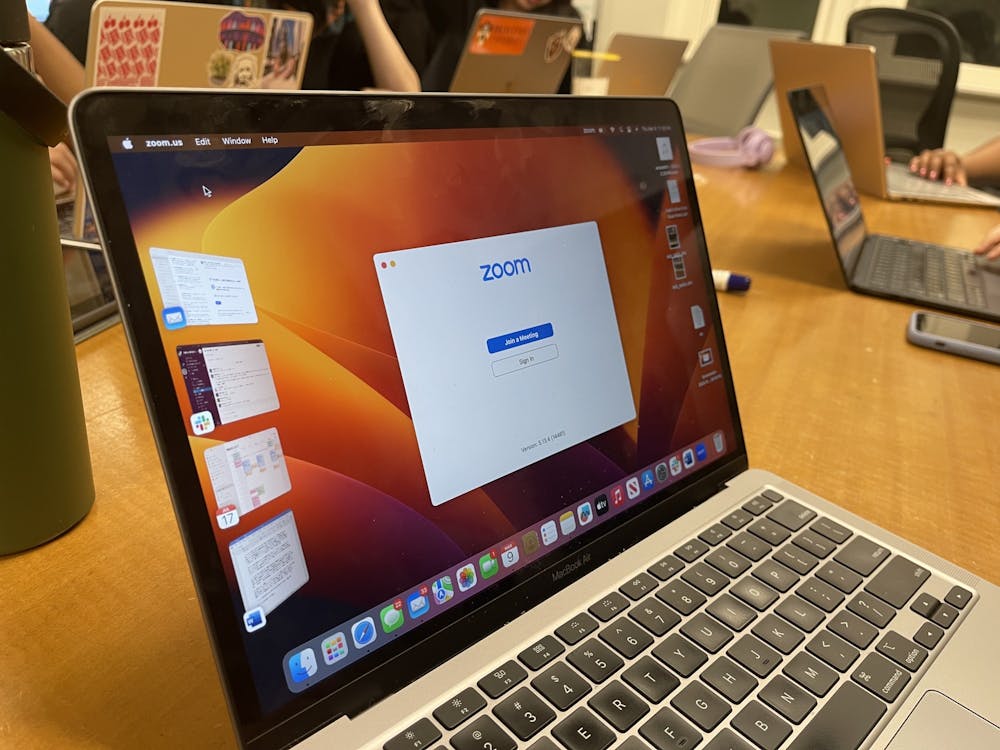Who wouldn’t love to work on a beach? In his recent column, Technology Columnist Christopher Lidard ’25 describes the time he actually did, arguing for work that is virtual, and subsequently more “temporally and geographically flexible”; powered through Zoom; and via the disintegration of the standard workday.
Though I share similar qualms with the current schema of a 40-hour work week and think working on the beach sounds lovely — at least at first — a virtual and amorphous replacement to our current standard of work would be disastrous for personal well-being. Nothing shows this better than the effects of virtual work during and post-COVID-19.
Working 9 a.m.–5 p.m. Monday through Friday or attending class all day every weekday can be grueling. Yet the problem is not that our days have structure, but that the current framework is unnecessarily unaccommodating. Routine provides healthy consistency, whereas undefined work hours can lead to difficulties organizing time and ensuring a good work-life balance.
College students have a lot of experience with this type of unstructured work. At Princeton, students understand undefined work, since there are no fixed schedules and homework, extracurriculars, and personal tasks can expand to fill every moment of the day. When taken to the extreme, however, this expectation can and has manifested in serious mental health struggles, a problem that the Zoom platform exacerbates.
I felt this especially as I completed schoolwork on Zoom during the initial COVID-19 lockdowns. Zoom encouraged asynchronous work as many lectures were pre-recorded. Without the structure of the in-person school day, it was hard to block out time for extracurriculars and other commitments. My school work and personal life temporarily became so physically entwined that I forgot the difference.
Though the blurring of this divide is in some ways integral to the experience of being a college student, it becomes far more damaging in more professional settings.
Working entirely on Zoom may allow a business to overly blur the lines between leisure time and professional obligations. This lack of a distinction has been shown to especially impact personal obligations and interests — like being a parent or maintaining hobbies — and has had detrimental effects on mental health. Not every job is a passionate project or lends itself to work-life integration. The expectation should be that employees have the choice to leave their work at their workplace and not be forced to carry it home with them. This is especially true because of the benefit that separating personal and work spaces provides. A beach is simply not a good work environment.
More than just highlighting the importance of environment and structure, COVID-19 restrictions have proven that virtual work failed as a permanent solution. Virtual learning has been disastrous for education, and it would be irresponsible to suggest that in-person work and interaction can be substituted for virtual communication — or even no communication at all. The value of physically seeing and interacting with people cannot be understated.

In high school, I had a very difficult time adjusting to Zoom — first technically and then socially. Though I was in constant contact with my teachers and peers, I felt myself drifting away from everyone I had grown used to seeing on a daily basis. I had never experienced such intense feelings of isolation like that before, so I did not know how to dig myself out of the rut I found myself in and found less and less solace in my Zoom interactions. I couldn’t pick up most nonverbal cues, was constantly distracted by everything else that was occuring on my computer screen, and lost the physiological feeling of connectedness I needed.
Years later, I still cringe when I receive a virtual meeting invite. Sure, it can be handy when geography or accessibility present a barrier to interacting with other people in person. But to suggest that most of our interactions, professional or personal, should shift to an asynchronous online format is misguided: it completely ignores the importance of structure and personal contact. Zoom is not the solution — it is a crutch — and one that ought to be avoided when possible.
Christofer Robles is a sophomore from Trenton, N.J. He serves as an assistant Opinion editor and DEIB Board Chair. Christofer can be reached at cdrobles@princeton.edu or on Instagram @christofer_robles.









